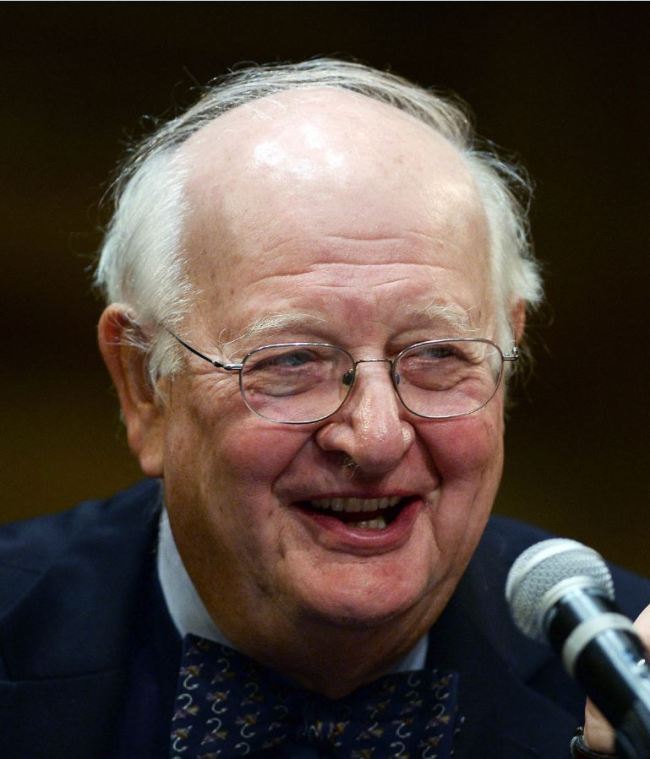[Newsmaker] Poverty expert Deaton wins Noble Prize
By Korea HeraldPublished : Oct. 13, 2015 - 19:52

The 69-year-old academic, who has spent more than 30 years in the United States, was honored for using household surveys to show how consumers, particularly the poor, decide what to buy and how policymakers can help them.
India, one of the fastest growing economies in the world, is a key area of his research.
“His work has helped transform modern microeconomics, macroeconomics and development economics,” the Royal Swedish Academy of Sciences said.
“To design economic policy that promotes welfare and reduces poverty, we must first understand individual consumption choices. More than anyone else, Angus Deaton has enhanced this understanding,” it said.
Deaton described winning the prize as a little like being struck by lightning and joked that he initially worried it was a prank.
“I was not lying in bed at six o’clock this morning thinking, ‘Oh, that phone call should come,’” he told reporters at Princeton.
“There was a very Swedish voice, which is almost enough, who said, ‘I would like to speak to professor Angus Deaton, there is a very important telephone call for him from Stockholm’,” he said.
“They said some very nice things about me, which was very nice,” he said to laughter.
“Then they were very keen to make sure I did not think it was a prank ... and of course as soon as they said that I thought, ‘Oh my gosh, maybe this is a prank.’”
Deaton was honored for three related achievements: developing with his colleague John Muellbauer around 1980 a system for estimating the demand for different goods; studies of the link between consumption and income that he conducted around 1990; and for measuring living standards and poverty in developing countries with the help of household surveys.
Deaton “looks more closely at what poor households consume to get a better sense of their living standards and possible paths for economic development. He truly, deeply understands the implications of economic growth, the benefits of modernity, and political economy,” Tyler Cowen, an economics professor at George Mason University in Virginia, said on his blog Marginal Revolution.
Deaton’s research has shown how clever use of household data can shed light on issues such as the relationship between income and calorie intake, and gender discrimination within the family.
Deaton saw how an economic indicator such as gross domestic product ― which measures a country’s economic growth and is the preferred indicator of governments and institutions ― was insufficient in evaluating the general welfare of a people.
Deaton is optimistic about economic progress in the world.
In his 2013 book “The Great Escape,” he outlined how overall human welfare ― especially longevity and prosperity ― has risen spectacularly over time, even though the inequality gap between rich and poor has widened.
On Monday, Deaton told reporters that he believed poverty would continue to decline.
“I think we’ve had a remarkable decrease for the past 20-30 years. I do expect that to continue,” he said, noting however that there were still 700 million extremely poor people according to the World Bank.
“I do tend to emphasize too that there is much to be done,” he said.
Reducing poverty, for example, would resolve the current migration crisis which has seen more than 630,000 people landing on Europe’s doorstep this year.
“What we see is the result of hundreds of years of unequal development ... that left a whole part of the world behind,” he said.
“I’m hugely worried about inequality and I think inequality has gone past the point where it’s helping us all get rich, which it can do, and it’s really becoming a serious threat,” he added.
He singled out climate change as difficult to handle as an example, “because so many people who have so much money are opposed to climate change reform.”
He also said a great sadness was that of the enormous amount of money spent on aid in Africa, very little had gone on data collection so there was little information on its benefit.
Deaton was born in Edinburgh, Scotland, and taught at the universities of Cambridge and Bristol before becoming professor of economics and international affairs at Princeton in 1983.
He is the 76th winner of the economics prize and the 55th of U.S. or dual U.S. citizenship since it was first awarded in 1969.
Deaton wins the prize sum of eight million Swedish kronor (about $950,000).
He will receive his prize at a ceremony in Stockholm on December 10, the anniversary of the death of the prizes’ creator, Swedish scientist and philanthropist Alfred Nobel. (AFP)
-
Articles by Korea Herald


















![[KH Explains] Hyundai's full hybrid edge to pay off amid slow transition to pure EVs](http://res.heraldm.com/phpwas/restmb_idxmake.php?idx=652&simg=/content/image/2024/04/18/20240418050645_0.jpg&u=20240418181020)

![[Today’s K-pop] Zico drops snippet of collaboration with Jennie](http://res.heraldm.com/phpwas/restmb_idxmake.php?idx=642&simg=/content/image/2024/04/18/20240418050702_0.jpg&u=)